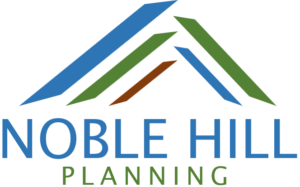One of the main issues facing investors is long-term tax planning. In essence, we must answer the question, “How can I minimize my lifetime tax burden?” For many people, this comes down to keeping their current year tax bill as low as possible. And at first glance this makes sense. After all, people really, really, really hate paying taxes. If your tax bill today is low, you will likely be happy.
However, this strategy, which I like to call “defer taxes at all costs”, can often lead to a higher overall tax burden when measured over your entire remaining lifetime (and including that of anyone inheriting your assets). You may be happy now, but perhaps not later.
Often, a better method involves strategically pulling income forward into the current year when marginal tax rates are attractive relative to future tax rates. Put another way, if you can pay tax at a 15% rate now, that’s better than paying tax at a 20% rate in the future. Fortunately, the U.S. Government provides us with a lot of flexibility around the timing of income, especially in retirement, so we should try to use it to our advantage.
And one of the best tools in our tax planning toolbox is the Roth conversion.
But how aggressive should we be when it comes to Roth conversions? I would argue that most people need to be more (or perhaps much more) aggressive when it comes to Roth conversions. In my experience, many people have a tough time shaking off the “defer taxes at all costs” way of thinking. And sadly, this can lead to some real problems if you have a large pre-tax IRA or 401(k).
After all, we cannot predict what tax rates will look like in the future, so it’s extremely difficult to pin down the precise “value” of doing a Roth conversion. And this uncertainty often gives us cover to revert to the comfort of the “defer taxes at all costs” approach. Many people say, “Well, I can’t be sure of what the value of a Roth conversion will be, so let’s just keep my current tax bill as low as possible.”
Benefits of Roth Conversions
However, even in the face of uncertainty, Roth conversions can offer substantial benefits when it comes to tax planning:
- Increase overall tax diversification
- Help manage required minimum distributions (RMDs) later in life
- Reduce the “tax drag” on assets in your taxable investment accounts
- Reduce tax burdens on heirs
- Simplify estate tax headaches
An Example
Consider a typical situation… Stanley and Melinda have a large taxable brokerage account and a large pool of pre-tax money in their IRAs, but no Roth assets. How does a Roth conversion help?
First, moving assets from the pre-tax bucket to the Roth bucket increases tax diversification. In effect, Stanley and Melinda are hedging their bets when it comes the uncertainty around future tax rates. They are also reducing the value of their pre-tax IRAs, which can help decrease future RMDs later in life.
Next, if Stanley and Melinda pay the tax bill on the Roth conversion with assets in their taxable brokerage account, they are in effect making an additional contribution to their Roth account. This allows them to shield taxable brokerage assets inside the Roth accounts, which can reduce the tax drag associated with the taxable investment accounts going forward.
And when Stanley and Melinda pass away, their heirs can receive tax benefits as well since they won’t incur any income taxes on the Roth assets. And if Stanley and Melinda are very wealthy and their estate is subject to Federal estate taxes, the Roth conversions can reduce the value of their taxable estate and the associated estate taxes.1
Learn More
The topic of Roth conversions (and tax planning in general) is highly complicated and I have certainly not covered all the details here. If you are interested in learning more about Roth conversions, I highly recommend Ed Slott’s book, The New Retirement Savings Time Bomb.2 Or feel free to reach out to me and I’d be happy to discuss further.
1 While some advisors may argue that Stanley and Melinda’s heirs could also use the “income in respect of a descedent” (IRD) rules instead of a Roth conversion, in many cases heirs forget to properly claim the IRD income exclusion and it often gets wasted.
2 I don’t get paid to recommend Ed’s book, I just enjoyed many of the concepts he shared in it and think you may find it valuable as well.

